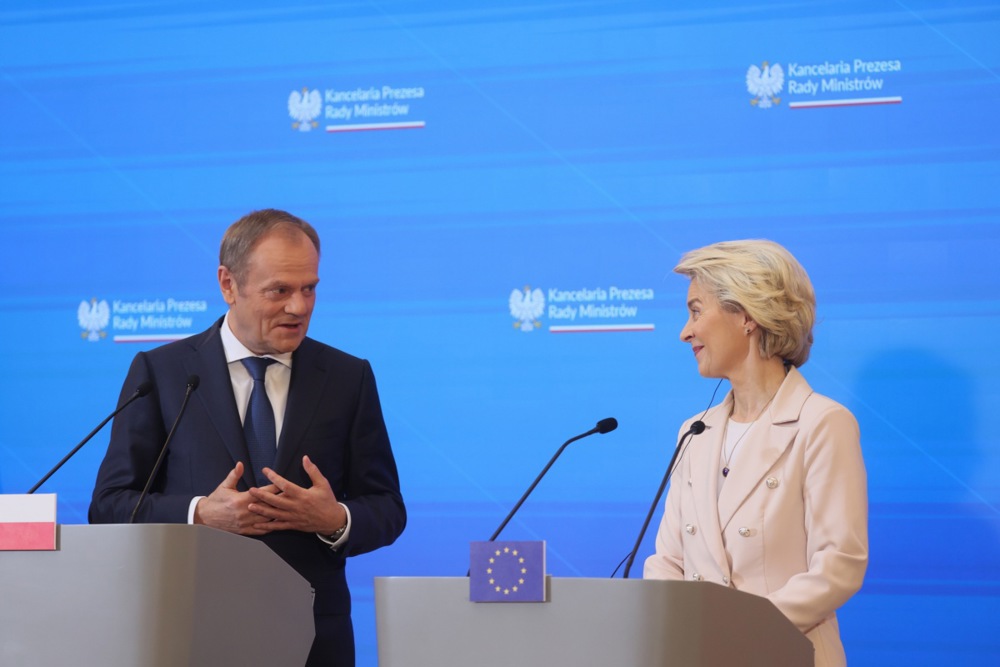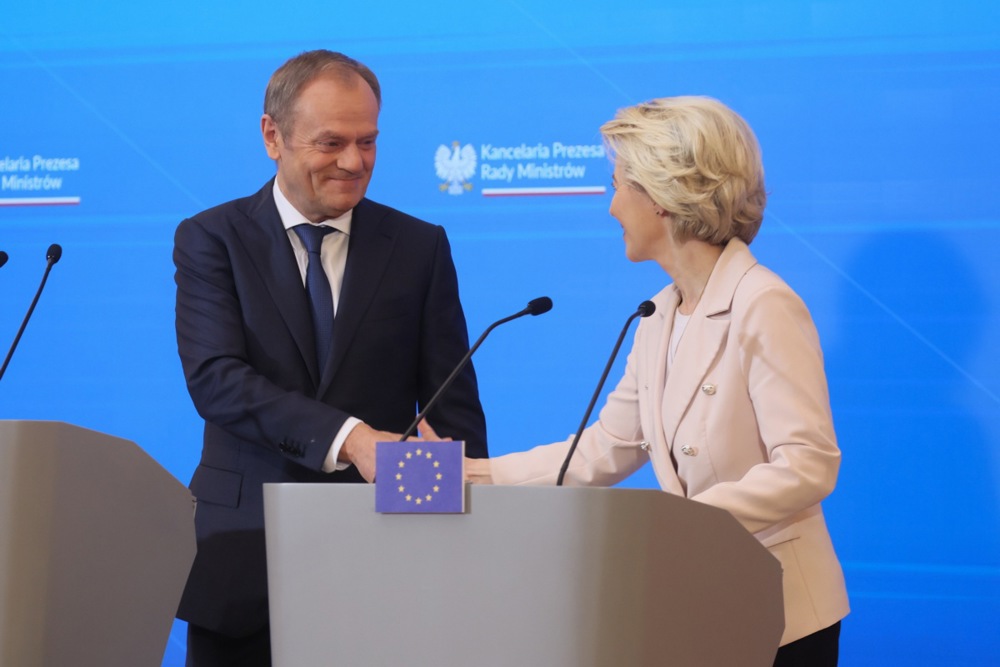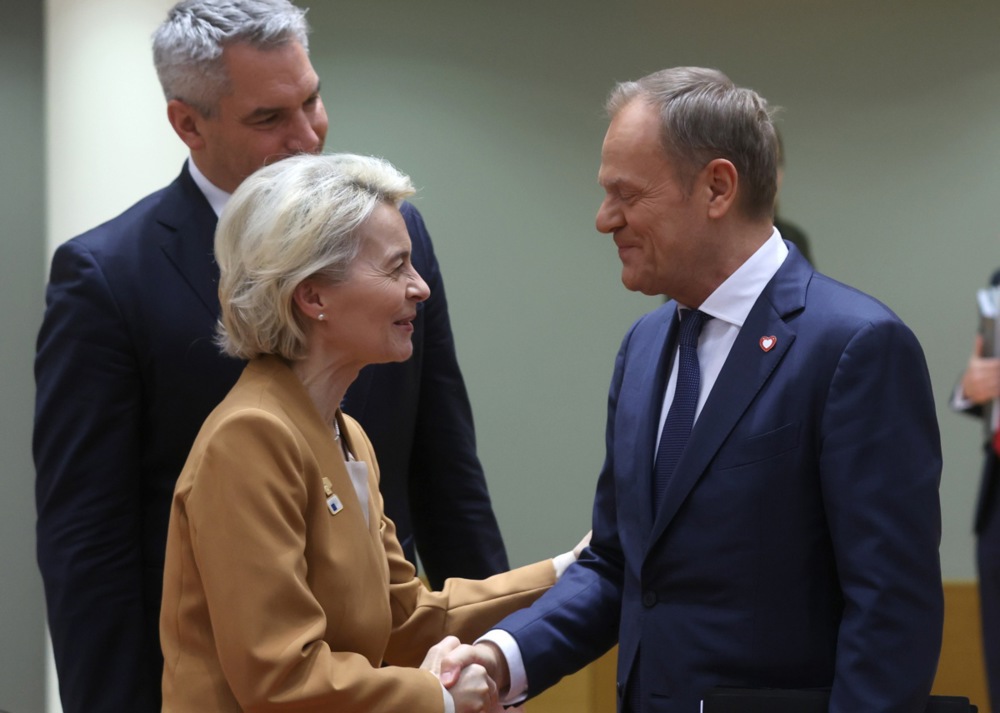Polish Prime Minister Donald Tusk says he will not take part in elections for the Polish presidency in spring 2025.
“I will not be running in the presidential elections,” Tusk announced on May 24. When asked about the candidacy of Warsaw Mayor Rafał Trzaskowski’s, who narrowly lost the last presidential election, Tusk said he “would be happy if the Mayor tried again”.
The PM, who is also leader of the country’s largest party in the ruling coalition (KO), explained his decision not to run by saying: “I have a lot of work to do here [as Prime Minister]. A few months or even years won’t be enough to clean up everything, so I really have a lot to do.”
Tusk had been mentioned as a potential replacement for European Commission President Ursula von der Leyen but has since backed her re-appointment bid. In addition, it is unlikely his party would want him to leave Poland just months after he ousted the previous PiS government.
There has been speculation in the Polish media that the recent unfreezing of European Union funds for Poland was the price Tusk extracted from von der Leyen for Poland’s support for her bid for a second term as EC chief.
Tusk, who contested the Polish presidency in 2005 and lost to the Lech Kaczyński of the PiS, has also argued that real power lay in the office of PM and not “under the chandelier” of the presidential palace.
The Polish governmental system is one in which the president has very limited powers and it is the Prime Minister who effectively acts as the head of the Government, both inside and outside Poland.
Tusk pointed out that “there is a whole group of candidates determined to fight for the presidency”, such as foreign minister Radosław Sikorski and justice minister Adam Bodnar, who have dropped broad hints they were interested.
There is also the Speaker of Parliament Szymon Hołownia, one of the leaders of the centrist Third Way alliance, although he would be unlikely to receive the backing of Tusk’s party.
Indeed, the PM seemed to indicate his preference for Trzaskowski to be the KO’s candidate, stating that if the Warsaw Mayor decided to run next year he would have Tusk’s support.
He added that had the presidential elections in 2020 been “fair” Trzaskowski would have won. According to Tusk, they “were not falsified in the sense that someone changed the results or added votes [but] they were obviously unfair [because] the entire State machinery was used against Trzaskowski.
“So I am convinced that if the elections were fully fair, if the State remained neutral during those elections, then Rafał Trzaskowski would be president,” he argued.
Still, the OSCE presidential election observers mission declared the vote fully free and robust, although it cited concerns about the behaviour of public media and some State companies who the group claimed had worked to support the PiS incumbent, Andrzej Duda.
Trzaskowski has long been favourite to contest the presidency for Tusk’s KO but his recent controversial decision to ban the Christian cross from public buildings in Warsaw City raised concerns that the much-needed backing of voters in Poland’s provinces and rural areas may be compromised.
The PiS, the main opposition to the Tusk Government, has problems with making its choice of presidential candidate for next year since the incumbent Duda cannot run again, having served a second and final term. The most likely candidate, former PM Mateusz Morawiecki, is not well liked by many in his party and does not connect well with the more nationalist oriented parts of the PiS electorate.
Another former PM, Beata Szydło, also of the PiS, is seen as being unlikely to attract centrist voters without whom a majority would also be hard to achieve.
The stakes are high for the PiS because if it loses the presidency, Tusk’s ruling majority will be able to complete its plans to purge the judiciary of all PiS’ appointments, remove the current central bank chief Adam Glapiński and replace him with its own nominee and push through a whole raft of other measures contested by the PiS.




